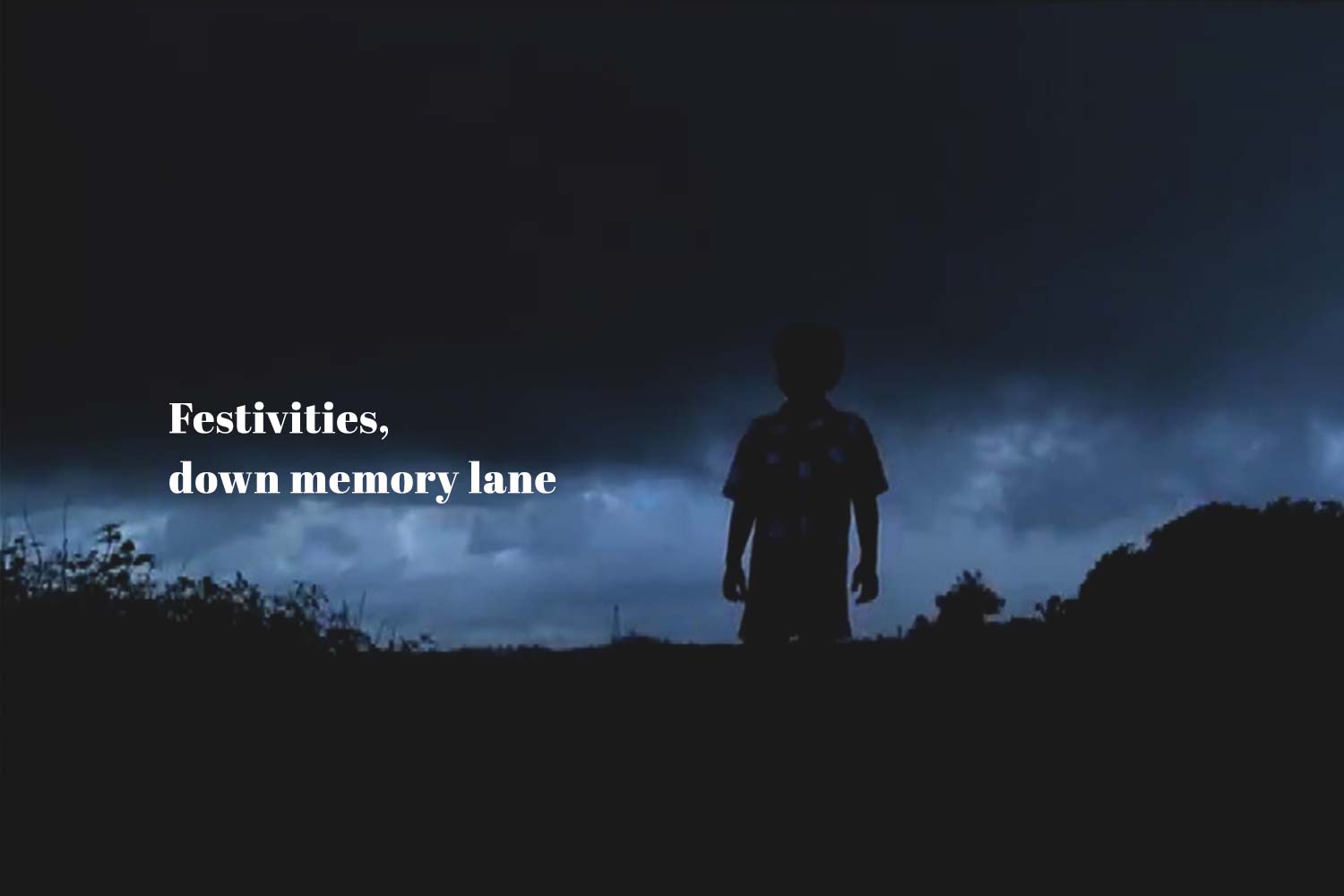‘The stories of how I grew up in village, my school life and my childhood tickle my memory’
Come festivities and I am driven down the memory lane by their nostalgic charm. The festive season starts right after the Ganesh puja and continues till the end of Kartik month of the Hindu calendar.
The stories of how I grew up in village, my school life and my childhood tickle my memory. About four decades ago, I lived in a remote village in Kalarabanka in Cuttack district of Odisha. The village lacked basic amenities, even electricity.
There was a narrow road by the riverside across which most of the modest houses were built. Even without the trappings of a comfortable life my village was unparalleled with its green cover, ever-welcoming Paika river, a tributary of the mighty Mahanadi, warm people and a plethora of temples.
The period of “Puja” was special for everyone in the village. Interestingly, festival in our village can be traced back to over 300 summers. Durga Puja and Kali Puja were the most celebrated ones amongst the many festivals we acknowledged.
Families came together, people who worked in far off places gathered at one place and it was time for rituals and bonding. Traditional cakes, sweets and attires were made and distributed.
Women and children dressed up in their festive best. Everyone was happy. It can be compared with the Nuakhai celebrations in west Odisha.
Our cowshed-like house was situated near the centrally-located Durga temple which created a certain aura of godliness and devotion amongst us and the entire village.
Festivals were fun with sounds of cymbals and group dances.
Every Durga Puja brings back memories of Kalarabanka, my native village. It was a convention to wear new clothes during the five-day festival.
Two of my elder sisters were married off and my brother worked in a faraway place that didn’t pay enough.
My younger sister, Iti and I lived in a dilapidated house alone during some Puja as Maa would visit and stay with our brothers.
During that period, new clothes and sumptuous food were a luxury we could not even dream of.
We observed people making delicious food and eating without offering it to us ever. We saw people living around us and enjoying the festivals and we were happy to see others enjoying. Even the poor aspire and manage to wear new clothes according to their capacity during Puja. Iti and I used to get a pair of new clothes from our elder brother which we would continue wearing till the next festive period. We would still wear the precious gift from our brother with utmost pride and happiness.
Durga Puja in our village was memorable for another reason: “The Fair”. People from nearby places assembled to celebrate the joyous and traditional mela. I would set up a small kiosk for selling balloons in the mela with the help of my sister.
Those four days of selling balloons were enjoyable as it was a source of income without the load of doing a double shift of school and work. It started when I was in Class 4 and continued till the end of my school life. At the end of each day, I would count the money and fortunately I earned a little surplus to survive. This income used to give me immense joy as it was hard earned.
The words of my mother still echo in my ears. She would say this in Odia— jakelokenakahlebhalo, seijiyantajivanemarlo which means if a human life isn’t appreciated by others then it isn’t worth living. If one is not hailed during his life time, it is like being a living dead.
I have treated this as the motto of my life and continue to work selflessly. I have not deviated from the path of honesty a wee bit even in running organisations, famously known as KIIT and KISS. I will continue in the same spirit till my last breath.
Like Durga Puja, Kali Puja is also celebrated in my village with great fervour and zeal. It is very famous and there is a big fair during this Puja as well. Good food and fun are the part of the fair. Many food kiosks are set up. It is a time for family get-togethers and villagers love moving around the fair, buying chaat and sweets. It is the only time when they can eat food from outside. Iti and I would go to the fair, roam around and have fun with the children and friends. We would be happy in the surcharged atmosphere but would never demand what we could not afford. Our own relatives would pamper their kids but never offered us aloo chop, bara or a rosogulla. That made me understand the humiliation one has to face as a child if one has no support to fall back on.
We would see parents pampering their kids, buying them food and goodies. We felt the lack of such cushion but we never complained. We never wanted sympathy. I remember those days and that is why today, I do everything to bring smiles to the faces millions of children.
My only passion today is to spread happiness among the deprived. I never forget to give bakshish to 1000 people and financial assistance to the needy. During Kali Puja, I distribute sweets, snacks and give goodies to the children of two schools at the Kalarabanka set up by us.
I am blessed to rise from the balloon seller to becoming a medium for alleviating poverty and sufferings for millions through education. Today, God has made me capable of visiting the same village and spreading happiness among children. But one thing remains common between then and now – I get happiness by spreading happiness.
A man is a sum of experience from the past. I am sad at times at the glaring inequalities in our society but I realise that the five fingers cannot be the same.
I have learnt a lesson that one can spread happiness by small acts of giving. A true life is lived when one takes the experience from the past and utilises it by not letting his fellow human beings suffer the way he did. One should never forget the past. I always remember what my mother used to say: “Thili Kana, Heli Kana, Hebi Kana” meaning always keep in mind what you were, what you are and what you will be. This is the essence of life and living.



Get Social